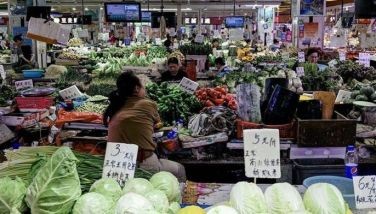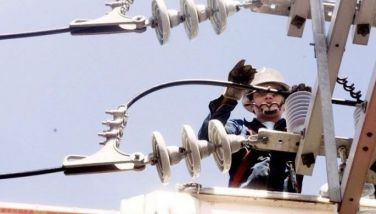Facebook did right

Finally, Facebook is cleaning up its act. Unfortunately for the Duterte trolls, they got caught violating Facebook’s community standards. So, they ran to Duterte claiming unfairness and Duterte threatens to ban Facebook in the Philippines.
Our Great Leader shouldn’t be too sensitive. He is not being singled out. Donald Trump’s tweets have been deleted and fact checked in real time.
In the case of Duterte, it is just his minions, not himself, who got purged from the social network. Our Great Leader’s weekly ruminations on the “veerus” are still carried on Facebook Live as is, curses and all.
Facebook can be useful for the country. As of 2019, there were almost 74 million Facebook users in the Philippines, many of those are OFW families.
Being thousands of miles away from family for work is emotionally distressful. OFWs use Facebook to keep family members informed on what’s going on in their lives. Taking Facebook away after closing ABS-CBN would make them and their families very unhappy.
Besides, banning Facebook can be circumvented by subscribing to Virtual Private Networks or VPNs. That’s what some visitors do when in China. But it entails costs, it is anti-poor.
Duterte also probably doesn’t know the Philippine government has a joint project with Facebook for high speed broadband infrastructure. Banning Facebook would look very bad and kill all interest on foreign investment here.
We are talking about the Pacific Light Data Communication project. The PLCN cable system is a Google and Facebook project.
Google owns one fiber pair in PLCN, connecting Hong Kong and the US with a branch to Toucheng, Taiwan.
Facebook owns one fiber pair in PLCN, connecting Hong Kong and the US with two branches to the Philippines, one landing at Baler, Aurora and the other at San Fernando, La Union. The Baler and San Fernando cable landing stations are owned by the BCDA.
The Philippine branch of the 12,800-kilometer PLCN undersea cable system is expected to significantly lower the cost of internet services in the country.
The project is also part of the National Broadband Plan, which seeks to power government offices “down to the barangay level” apart from small internet companies in far-flung towns.
In exchange for utilizing the bypass infrastructure, Facebook will provide the Philippine government with spectrum equivalent to at least two million Mbps, significantly expanding the capacity available for the government’s connectivity programs.
It should be online soon. But the Trump administration ordered Facebook not to terminate the project in Hong Kong. We should convince FB to instead make the Philippines their hub not only to Southeast Asia, but also to the whole of Asia.
Back to the Duterte tirade… Facebook had been under increased criticism and pressure for its early insistence against fact-checking political advertising.
For other content, Facebook relies on third-party fact-checking for what is run on its social network. Facebook’s third-party fact-checkers scrutinize “public, newsworthy Facebook posts, including ads, with articles, photos, or videos.”
Facebook adheres to an international standard for fact-checking: The International Fact Checking Network, run by Poynter.
Internationally, Facebook has been accused of inadvertently enabling the ethnic cleansing of Myanmar’s Rohingya minority. The platform saw the viral spread of “fake news” and hyper-partisan communities, it was alleged, but without a stable civil society to provide a countervailing force, the country exploded into violence.
So, Facebook is under the gun. Facebook is also trying to live down and avoid a repetition of the Cambridge Analytica scandal, that’s why the social media giant assembled a team of experts to spot abuses and protect the company’s reputation.
This is how the Duterte trolls got into trouble. Their fake social media accounts that promoted news content in the Philippines were shut down last week by Facebook. Some of these fake accounts included those traced to individuals in China.
Nathaniel Gleicher, Facebook’s cybersecurity policy chief also talked of a second network.
“Although the people behind this activity attempted to conceal their identities, our investigation found links to Philippine military and Philippine police.”
Duterte is angry at Facebook now, but he conveniently forgot he greatly benefited from Facebook in his presidential campaign. A 2017 Oxford University study found that Duterte spent $200,000 to hire up to 500 trolls during his presidential campaign the previous year.
Nic Gabunada, Duterte’s social media strategist during the 2016 presidential election campaign said in a published interview Facebook became a cheap and convenient vehicle for the Duterte campaign.
This was because Facebook struck deals with Smart and Globe to make Facebook free to use in the Philippines for anyone with a smartphone. Gabunada, former head of research at ABS-CBN and a very good number cruncher, saw the possibilities.
Facebook had been shutting down accounts from the Philippines over the past two years, including 200 Facebook accounts for “coordinated inauthentic behavior.”
Facebook defines that as anything that misrepresents oneself on Facebook, use fake accounts, artificially boost the popularity of content, or engage in behaviors designed to enable other violations under Facebook’s Community Standards.
“This policy, Facebook explains, “is intended to create a space where people can trust the people and communities they interact with.”
Nic, a former associate of mine at ABS-CBN, is skeptical. He told Rappler he believes global platforms face a losing battle in trying to stem the spread of fake news. “No one can control what people can say on social media.”
It isn’t just Facebook. Twitter also recently suspended hundreds of accounts for “posting duplicate content across multiple accounts, creating duplicate or multiple accounts, and sending large numbers of unsolicited replies or mentions.”
Most of the accounts posting pro-Duterte hashtags had “suspicious elements” such as bot-like numbers on Twitter account names and few followers. Many users were also new, with the accounts created in March or April.
Facebook is also looking into “reports of suspicious activity” in the Philippines, after students, journalists and opposition figures found a deluge of impostor accounts made under their names.
Duterte can tell his supporters they can still use Facebook but they must follow the rules. Social media shouldn’t be toxic and misleading. Simple as that.
Boo Chanco’s e-mail address is [email protected]. Follow him on Twitter @boochanco
- Latest
- Trending































